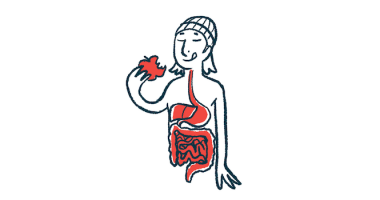Risk of Falls May Predict Difficulties With Swallowing, Small Study Finds

A heightened fear of falling — common for Parkinson’s patients due to balance and walking problems — is significantly associated with greater swallowing difficulties among these people, a small study shows.
Notably, this association was observed even when adjusting for potential influencing factors such as disease duration, suggesting these symptoms may be linked in ways that extend beyond general disease progression and have similar underlying mechanisms, the researchers noted.
Further studies are needed to confirm these findings and clarify their mechanisms, which may help to identify new therapeutic targets, as well as patients at risk of swallowing problems.
The study, “Falls risk is predictive of dysphagia in Parkinson’s disease,” was published in the journal Neurological Sciences.
As Parkinson’s disease progresses, patients often develop axial symptoms — those that affect the spine, chest, and sacroiliac joints (connecting the spine to the hips) — that may not be responsive to levodopa, a standard treatment.
Axial symptoms include difficulties with speech and swallowing, neck rigidity, and balance, posture, and gait (walking) problems, including freezing of gait. Freezing of gait, characterized by a feeling of being “stuck” to the ground that prevents walking, increases the likelihood of falls and fear of falling.
Swallowing difficulties, or dysphagia, can raise a risk of aspiration pneumonia, a lung infection associated with breathing food or liquid into the lungs and hospitalization.
While dysphagia in Parkinson’s has been associated with age, disease duration, and cognitive impairment, no study to date has explored its possible ties with other axial symptoms such as gait and postural problems.
A team of researchers in the U.K. and Greece analyzed data from 29 Parkinson’s patients (18 women and 11 men) with dysphagia and/or gait problems. None had signs of dementia.
Patients’ mean age was 70, and they had been living with Parkinson’s for a mean of 12.1 years.
The team evaluated whether swallowing problems were associated with a fear of falling, an indirect measure of the likelihood of a fall, and with freezing of gait. Dysphagia was assessed using the Swallowing Disturbance Questionnaire (SDQ), fear of falling with the Falls Efficacy Scale, and freezing of gait using the Freezing of Gait Questionnaire.
Results showed that 26 (90%) patients had postural instability, 19 (66%) reported freezing of gait, and 14 (48.3%) had swallowing problems. Impairment in more than one area was reported by 23 patients. While some patients reported only postural instability or freezing of gait, all with dysphagia reported gait/postural problems.
Notably, the severity of dysphagia significantly associated with the severity of a fear of falling, but not with freezing of gait. Fear of falling was linked not only to SDQ’s total score, but also to its oral and pharyngeal subscores.
In addition, “falls risk was predictive of dysphagia severity even when other factors previously linked with swallowing dysfunction were taken into account,” suggesting “a link between these two axial PD [Parkinson’s disease] symptoms beyond general disease progression,” the researchers wrote.
Increasing evidence suggests that falls and/or gait difficulties are associated with problems in a particular brain region called the cholinergic pedunculopontine nucleus (PNN), which provides regulatory signals to the region that controls swallowing.
As such, “degenerative changes in PPN could therefore provide a common substrate for parallel gait and swallow dysfunction in PD,” the researchers wrote, adding that further mechanistic research is “required to confirm this hypothesis.”
Such studies also may help to “more precisely determine the anatomical substrate of levodopa-resistant axial symptoms in PD and provide clues to further management,” they added.
In addition, these findings suggest that development of falls in Parkinson’s patients “should alert clinicians to the possibility of other axial features like dysphagia,” the scientists wrote.
They noted, however, that larger studies are needed to confirm these links.







